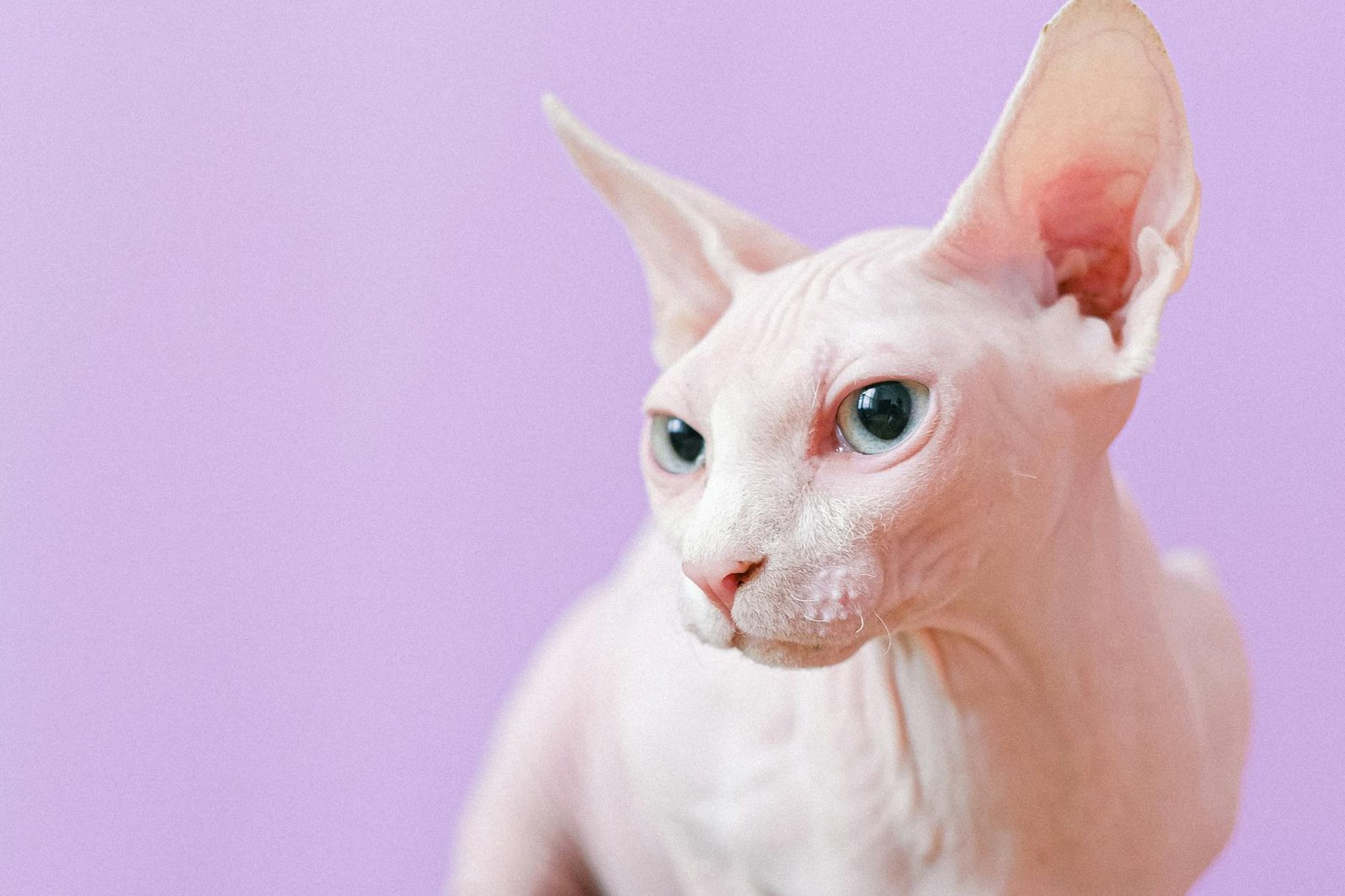Raising a healthy Sphynx kitten is both a rewarding and challenging experience. With their hairless appearance, high energy, and unique care needs, Sphynx kittens require special attention from day one. In this guide, we’ll explore the essential steps for ensuring your Sphynx kitten grows up healthy and strong, covering nutrition, hygiene, medical care, socialization, and more.
Learn more about Sphynx Cat Health and Care.
Healthy Sphynx Kittens Require Special Care
Sphynx cats, known for their lack of fur, are more sensitive to their environment compared to other breeds. Their exposed skin requires regular cleaning, and they must be kept warm due to their higher susceptibility to temperature changes. Additionally, their high metabolism and energetic nature make proper nutrition critical for their development.
Proper care in the kitten stage sets the foundation for a healthy adult Sphynx cat. Providing the right nutrition, vaccination schedule, and socialization from a young age will ensure your kitten thrives.
Explore more about Common Health Issues in Sphynx Cats.
Nutrition for a Growing Healthy Sphynx Kitten
A balanced, high-protein diet is crucial for Sphynx kittens, as they require extra calories to support their rapid growth and high activity levels. Providing a mix of high-quality wet and dry food ensures they get the nutrients they need.
- High Protein Diet
Sphynx kittens need a diet rich in animal-based protein to support muscle growth and development. Look for wet or dry cat food with meat as the primary ingredient, avoiding fillers like corn or wheat. - Frequent Feeding
Due to their fast metabolism, Sphynx kittens benefit from small, frequent meals throughout the day. Offering 3-4 meals daily ensures they get the calories they need without overfeeding at one time. - Hydration
Wet food provides additional hydration, which is important for Sphynx kittens since they can be prone to dry skin. Always keep fresh water available to encourage hydration.
Hygiene and Grooming Tips for Sphynx Kittens
Without fur to absorb body oils, Sphynx kittens require regular bathing and ear cleaning to prevent skin infections and earwax buildup.
- Bathing
Weekly baths help remove excess oil from their skin, which can otherwise lead to rashes or clogged pores. Use a gentle, hypoallergenic cat shampoo and warm water to bathe your kitten, and make sure to dry them completely afterward to prevent fungal infections. - Ear Cleaning
Sphynx kittens are prone to earwax buildup, which can lead to infections. Use a vet-approved ear cleaner and cotton pads to gently clean their ears once a week. - Nail Trimming
Regular nail trims are essential to prevent overgrowth, as Sphynx kittens’ nails can grow quickly. Keep the nails trimmed to avoid scratches and discomfort.
Check out our Sphynx Grooming Guide for more detailed grooming tips.
Socialization and Behavioral Training
Early socialization is critical for Sphynx kittens to develop into well-adjusted adult cats. Sphynx cats are naturally social and affectionate, but they still need exposure to different environments, people, and other animals to ensure they don’t develop fear or anxiety.
- Handling and Play
Handle your Sphynx kitten daily to build trust and confidence. Play sessions with interactive toys help burn off their high energy and reinforce the bond between you and your kitten. - Introducing Other Pets
If you have other pets, introduce your Sphynx kitten gradually to avoid stress. Use a safe, quiet space where your kitten can explore and get accustomed to their new surroundings. - Training
Training a Sphynx kitten in basic commands, litter box usage, and acceptable behavior is easier when they are young. Use positive reinforcement, such as treats and praise, to encourage good behavior.
Learn how to Litter Train Your Sphynx Kitten.
Medical Care and Vaccination Schedule
Maintaining a strict vaccination and health checkup schedule is key to ensuring your Sphynx kitten stays protected from common diseases. Routine vet visits are necessary to monitor their health and growth.
- Vaccination Protocols
Sphynx kittens require vaccines to protect them from diseases like Feline Viral Rhinotracheitis (FVR), Calicivirus, and Panleukopenia (FVRCP), as well as rabies. Your kitten should receive its first set of vaccines at 8-10 weeks old, followed by booster shots until they are fully protected. - Parasite Prevention
Use a vet-recommended flea and tick prevention regimen to protect your kitten from parasites, especially if they go outside. Regular deworming is also crucial. - Spaying/Neutering
It’s recommended to spay or neuter your Sphynx kitten once they reach 4-6 months old to prevent unwanted behaviors and reduce the risk of certain health problems, such as reproductive cancers.
Read our Sphynx Cat Vaccination Schedule for more details on the recommended vaccination schedule.
Creating a Comfortable Environment
Sphynx kittens need a warm, comfortable environment to thrive, especially since they lack the fur that would usually keep them warm. Here’s how to create a space they’ll love:
- Warm Beds and Blankets
Provide plenty of warm, cozy spots for your kitten to rest. Self-heating cat beds or blankets can help them stay warm, especially in cooler months. - Clothing
Some owners choose to dress their Sphynx kittens in light clothing to protect them from cold temperatures. Make sure the clothing fits well and doesn’t restrict movement. - Scratching Posts and Play Areas
Set up scratching posts and interactive toys to keep your kitten active and prevent boredom. Providing these outlets for their energy will also help protect your furniture.
Conclusion
Raising a healthy Sphynx kitten requires attention to their unique needs, from proper nutrition to grooming and regular vet visits. By following the right feeding schedule, socializing them early, and keeping their environment clean and warm, you’ll ensure your Sphynx kitten grows into a happy, healthy cat. For more information, explore our detailed guides on Sphynx cat care, grooming, and health.


